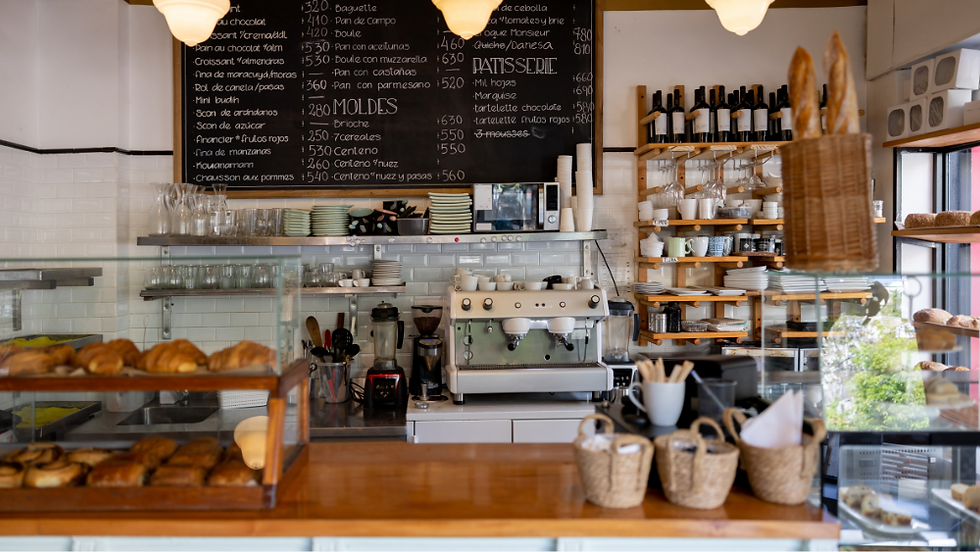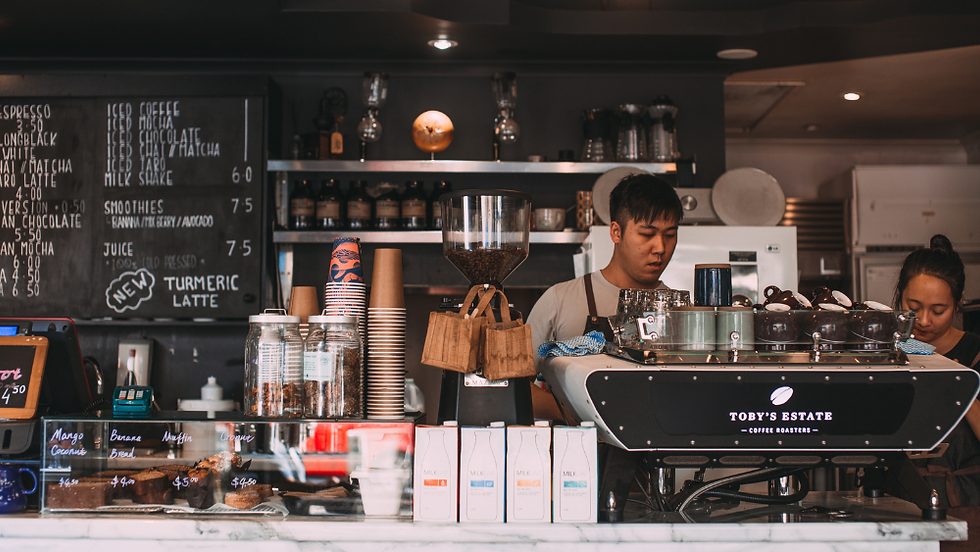Brewing Success in Singapore's Cafe and Bakery Business Scene
- allesautos
- Dec 19, 2024
- 3 min read

Starting a cafe or bakery in Singapore is a dream for many, but understanding the costs involved is crucial. For small business owners and culinary enthusiasts, knowing where to allocate resources makes all the difference. In this blog, we'll unravel the financial realities of opening a small cafe or bakery in Singapore. From essential equipment and decor to marketing strategies, this guide will help you map out your budget effectively.
The Cost of Renting Space
Choosing the right location for your cafe or bakery can greatly influence your success. In Singapore, rental costs vary widely depending on local. Central areas like Orchard Road command higher rents compared to suburban locales. Monthly rates can range from SGD 5,000 to over SGD 15,000. Consider your target demographic and foot traffic when deciding. While high-rent areas offer greater visibility, smaller neighborhoods may offer a loyal local client base.
Interior Design and Decor Expenses
Creating an inviting atmosphere is key to attracting customers. Whether you're opting for a minimalist approach or a cozy, rustic design, decor costs can add up. Budgeting for furniture, lighting, and decor items is essential. On average, expect to spend around SGD 10,000 to SGD 30,000.

Kitchen Equipment and Appliances
Investing in quality kitchen equipment is non-negotiable for a cafe or bakery. Essential items include ovens, mixers, refrigerators, and coffee machines. New equipment can range from SGD 20,000 to SGD 50,000.
Staffing and Training Costs
Hiring and training staff is a significant operational cost. Salaries for baristas, chefs, and service staff vary, with monthly wages ranging from SGD 1,500 to SGD 3,000. Investing in proper training ensures consistency in service and product quality. Providing staff with opportunities for skill development can increase job satisfaction and reduce turnover rates.
Inventory and Supply Costs
Your daily operations depend heavily on inventory management. Calculate the costs for raw ingredients, packaging, and other consumables. Establish relationships with reliable suppliers to secure better rates. Regularly reviewing supply costs is crucial for maintaining profitability. Aim to strike a balance between quality and cost to meet customer expectations while keeping margins healthy.
Prioritize energy-efficient models to save on utility bills in the long run.
Licensing and Permits
Operating a food establishment in Singapore requires obtaining various licenses and permits. These include a Food Shop License, Fire Safety Certificate, and more. The costs for these can range from SGD 1,000 to SGD 3,000, depending on your specific operation. Ensure compliance with local regulations to avoid fines or business shutdowns. Consulting with a local business advisor can help streamline the process.

Marketing and Promotion Expenses
Marketing is vital for establishing your brand in Singapore's competitive F&B scene. Allocate a budget for both online and offline marketing strategies. Social media advertising, website development, and in-store promotions can range from SGD 2,000 to SGD 10,000 initially. Engaging content and strategic promotions can drive customer engagement and increase brand awareness.
Technology Investments
Incorporating technology enhances operational efficiency and customer experience. Consider investing in a Point of Sale (POS) system, website hosting, and mobile payment solutions. Initial costs may be around SGD 1,000 to SGD 5,000. Technology not only streamlines processes but also provides valuable insights into customer behavior, helping tailor your offerings effectively.
Utilities and Operational Expenses
Monthly utilities, including electricity, water, and internet, add to your ongoing expenses. Depending on your establishment size and equipment, expect to pay between SGD 1,500 and SGD 3,000. Managing these costs through energy-efficient practices and routine maintenance helps keep overheads manageable. Regularly reviewing these expenses ensures efficient resource allocation.
Insurance and Contingency Funds
Business insurance protects against unforeseen events that could disrupt operations. Premiums typically range from SGD 1,000 to SGD 3,000 annually. Additionally, setting aside a contingency fund for unexpected repairs or economic downturns is prudent. Planning for these uncertainties safeguards your business's longevity and financial health.

Community Engagement and Networking
Building a strong community presence is invaluable for sustained growth. Participate in local events, collaborate with nearby businesses, and engage with community organizations. Allocating a portion of your budget to these activities fosters relationships and expands your customer base. Networking within the industry also opens doors to potential partnerships and collaborations.
Opening a small cafe or bakery in Singapore requires meticulous financial planning. By understanding and budgeting for these key areas, you set the stage for success. However, if you're concerned about initial costs, consider a business loan from Alles Autos Credit. Our tailored solutions ensure you have the support you need to take your business to new heights. With careful planning and strategic investment, your dream of owning a cafe or bakery can flourish in Singapore's vibrant culinary landscape.





Comments